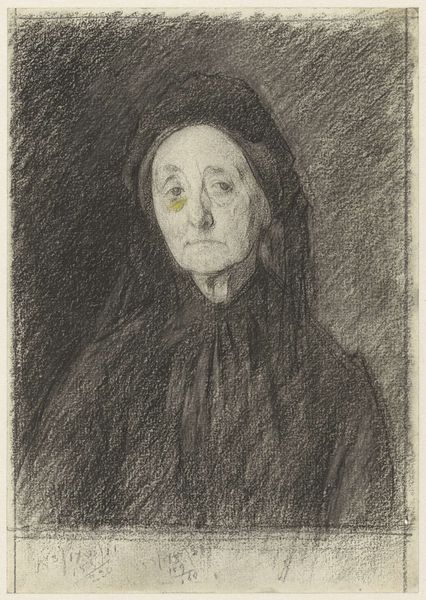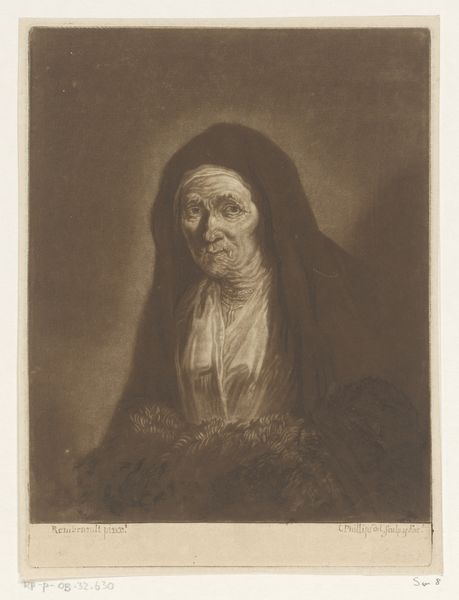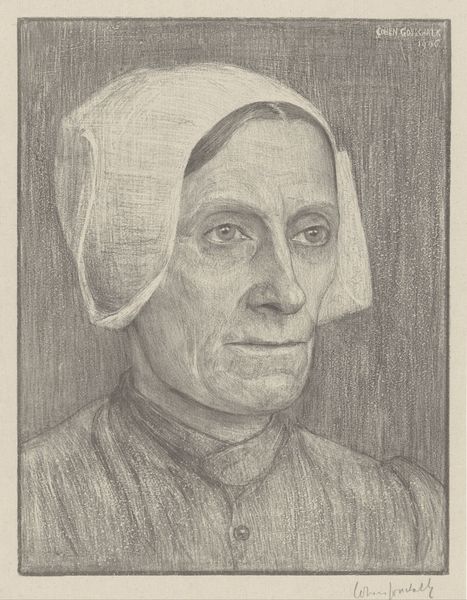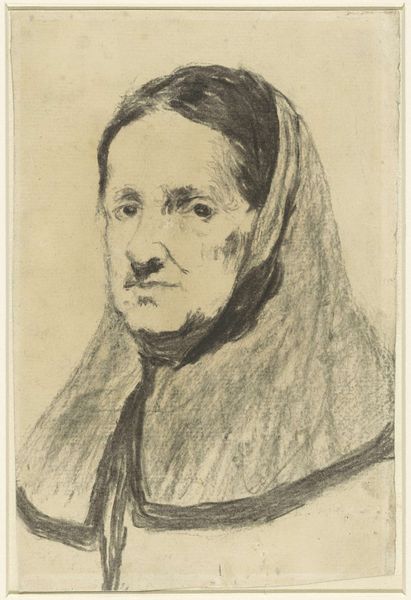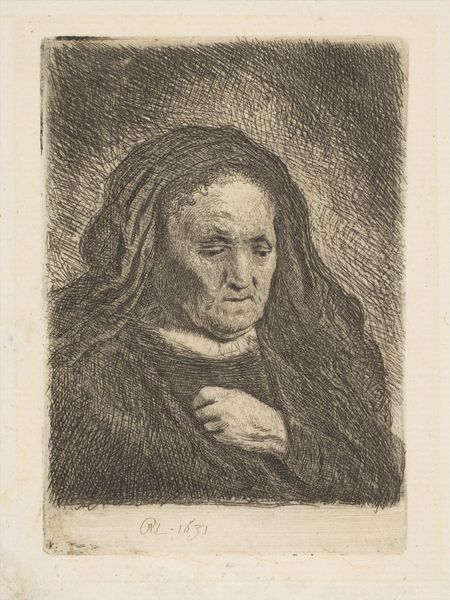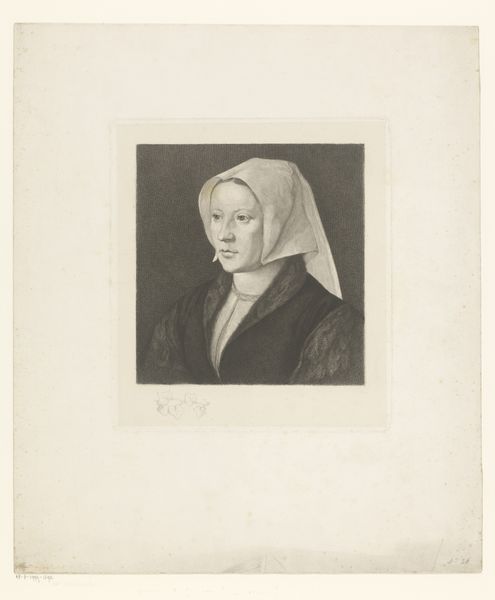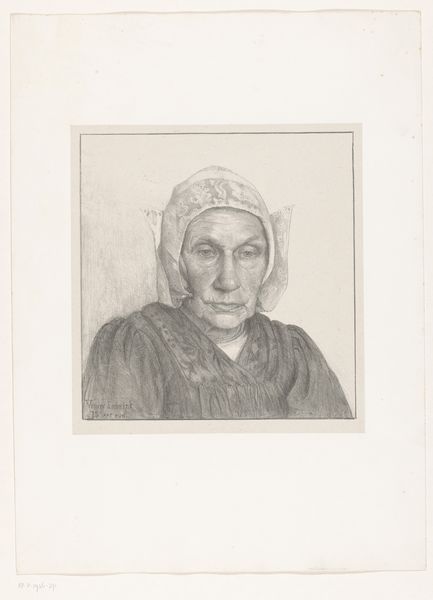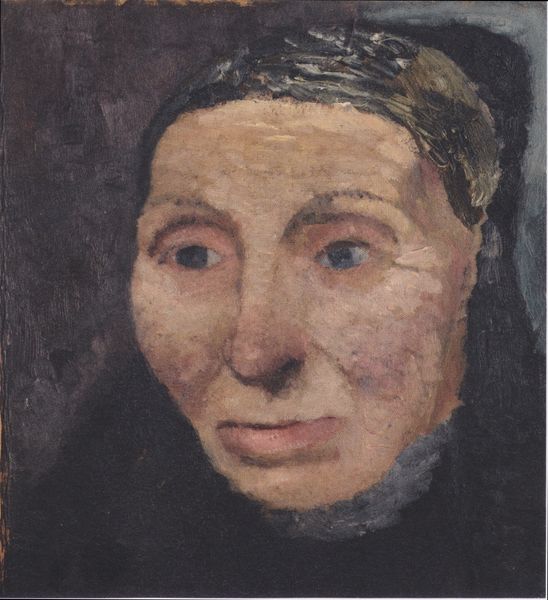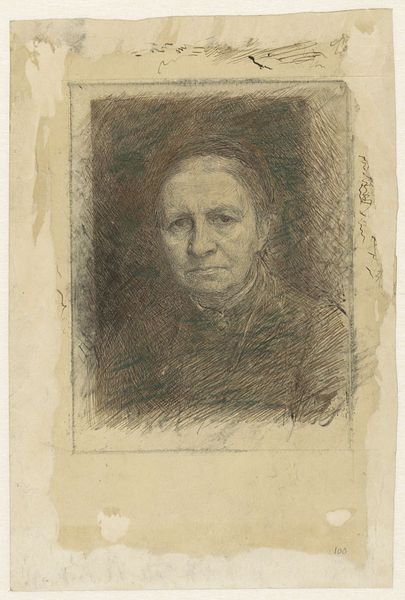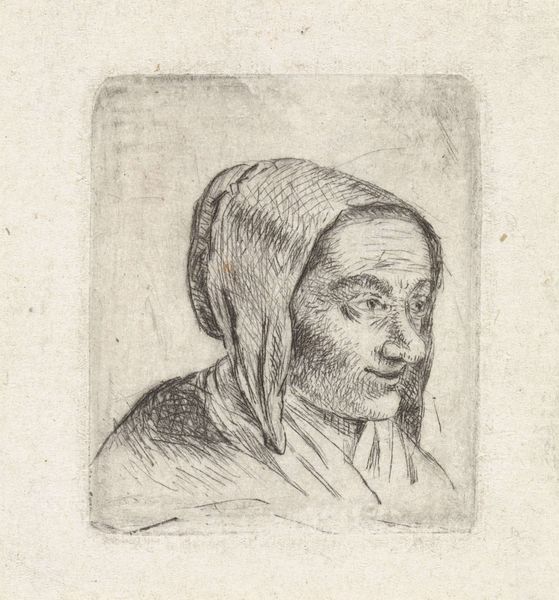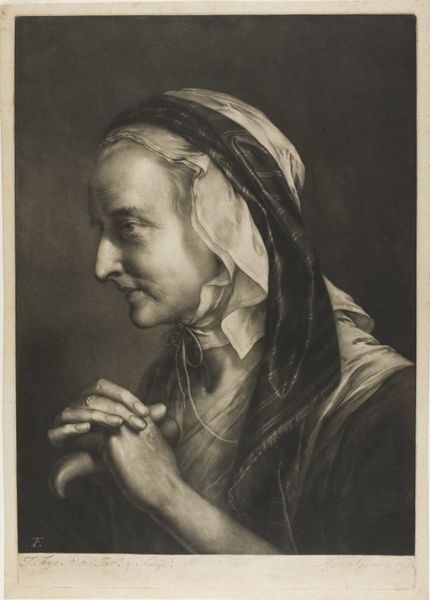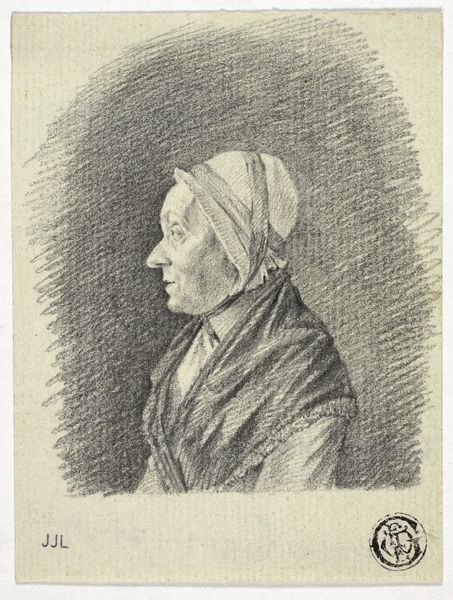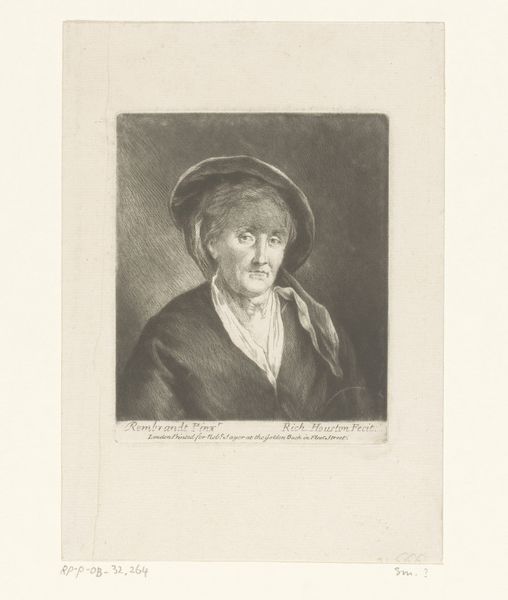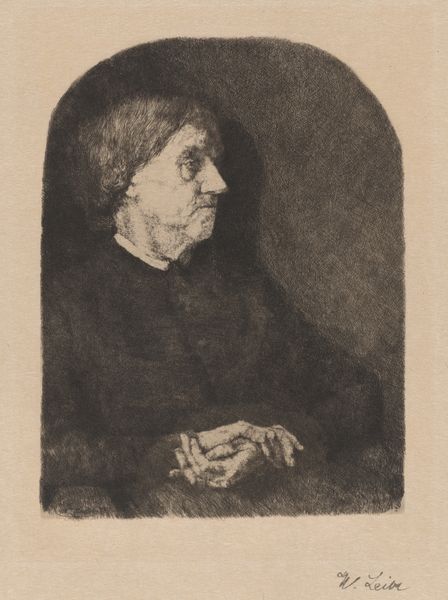
Dimensions: overall: 45 x 40 cm (17 11/16 x 15 3/4 in.)
Copyright: National Gallery of Art: CC0 1.0
Curator: Here we have Achille Laugé's "The Artist's Mother," a charcoal drawing crafted sometime between 1893 and 1896. It’s a portrait, obviously, but one feels a strong sense of…self-portraiture too, almost like looking into a mirrored past. Editor: Intimate. Yes, "intimate" is the first word that comes to mind. The way the charcoal captures the fine lines around her eyes... it's not just observation, it’s an exploration of lived experience, etched into her face through labor and time. The raw materiality speaks volumes, really— the almost brutal simplicity. Curator: You see it too then, that rough elegance? Laugé really zeroes in. Those meticulous marks, the subtle shifts in light across her face, even that loosely sketched border, almost breathing, containing… or barely containing her presence. I feel her very present. Editor: Exactly. It’s interesting to think about charcoal as the medium here. Traditionally associated with preliminary sketches, its use here elevates a fleeting material to something monumental. Laugé seems deeply invested in the tools and methods of production, even laying bare the labor it takes to achieve the overall effect. Curator: Perhaps. And consider that it isn’t overly sentimental. We don’t get soft focus here. This isn't a sugar-coated rendering. But a profound respect, nonetheless. Each line carefully considered, revealing a tenderness interwoven with the harsh realities of life. Editor: The very absence of sentimentality, though, becomes a statement. It is, materially, what gives it strength, its raw impact. Think about what domesticity in those times represented in terms of production, from clothing, weaving, etc… Maybe Laugé’s labor to make this connects with what was, for sure, his mother’s. Curator: That's a compelling observation, layering the maternal figure with layers of domestic craft and production through its very rendering! The way Laugé handled this humble material indeed, gives a lot to consider beyond surface aesthetics. Thanks for offering this material perspective; now I will look at it with different eyes! Editor: And I appreciate you inviting a discussion to reveal what it transmits, this mother portrait that tells a whole life, indeed!
Comments
No comments
Be the first to comment and join the conversation on the ultimate creative platform.
